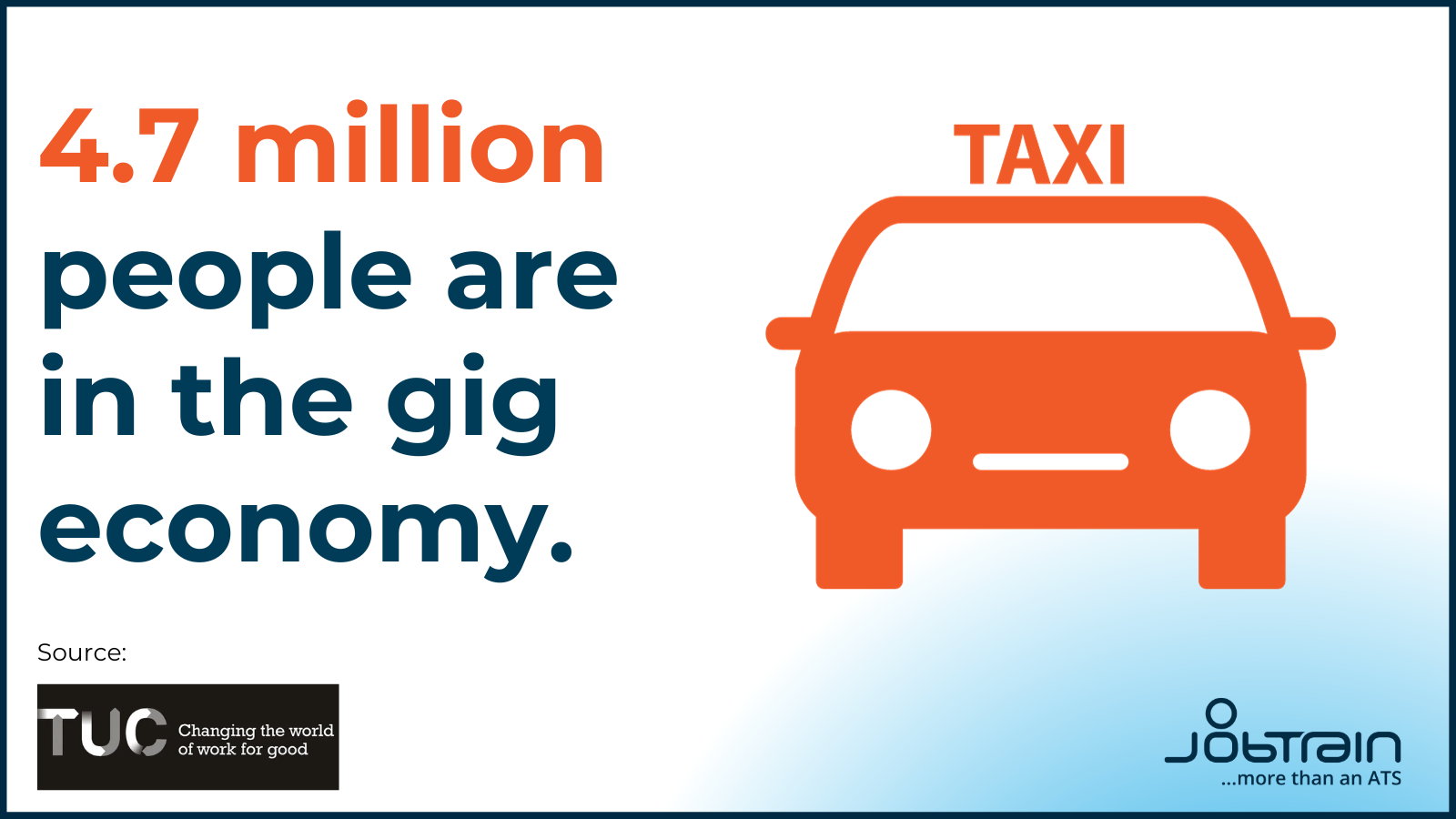1 - Understanding the Gig Economy
2 - A statistical overview
3 - Advocates and critics of the Gig Economy
4 - The future of the Gig Economy
In an era marked by rapid technological advancements and evolving work patterns, the term "gig economy" has emerged as a key player in the global labour market. But what is the gig economy, and how is it influencing the workforce, particularly in the UK?
Understanding the Gig Economy
The gig economy is a labour market characterised by the prevalence of short-term contracts or freelance work, as opposed to permanent jobs. In this system, companies hire independent contractors and freelancers instead of full-time employees. This model is particularly prevalent in companies that operate through apps or websites, connecting customers with workers for specific tasks or services, such as ride-sharing apps like Uber or delivery services like Deliveroo.
 The flexibility and freedom
The flexibility and freedom
One of the most significant advantages of the gig economy is the flexibility it offers to workers. Individuals can choose when, where, and how much they want to work, allowing for a more adaptable work-life balance. According to a survey by McKinsey Global Institute, “independent workers are more satisfied with their work lives than those in traditional jobs by a margin of 20 to 30 percentage points.”
Challenges and criticisms
However, the gig economy is not without its challenges and criticisms. The lack of job security, benefits, and labour protections typically associated with full-time employment are significant concerns. A report by the Trades Union Congress (TUC) in the UK highlights that gig economy workers are often at a higher risk of precarious working conditions (Trades Union Congress).
And according to the TUC - it's growing every year.
The Gig Economy in the UK: a statistical overview
In the United Kingdom, the gig economy has seen remarkable growth. A study by the University of Hertfordshire and the TUC found that nearly one in ten working-age adults in the UK is engaged in the gig economy, amounting to about 4.7 million people (University of Hertfordshire and TUC). This number has doubled in the past three years.
 Impact on the UK workforce
Impact on the UK workforce
This rise is reshaping the UK workforce, creating opportunities for those who value flexibility and independence. However, it also raises questions about the future of work and workers' rights. The UK government has been actively examining these issues, particularly in light of high-profile legal battles involving gig economy companies and their workers.
Diverse perspectives on the Gig Economy
The advocates' viewpoint
Supporters of the gig economy argue that it offers unmatched flexibility and autonomy for workers. They see it as a stepping stone for entrepreneurs and a means for people to supplement their income. The Chartered Institute of Personnel and Development (CIPD) notes that proponents believe the gig economy “provides opportunities for people to work who would otherwise be unemployed” (CIPD).
The critics' perspective
While the gig economy is often praised for its flexibility and autonomy, it faces significant criticism, particularly concerning worker rights and economic stability. Critics argue that the gig economy, under the guise of flexibility, can lead to exploitation and a lack of job security.
Economic insecurity and lack of benefits
A primary concern is the economic insecurity faced by gig workers. Unlike traditional employment, gig jobs typically do not offer steady income, benefits, or job security. The University of Oxford study highlights that gig workers often experience “lower wages and fewer benefits” (University of Oxford), leading to financial instability. This instability is not just about lower earnings but also about the unpredictability of work, which makes it difficult for individuals to plan their finances or secure loans and mortgages.
Absence of employment rights
Another significant issue is the absence of traditional employment rights. Gig workers are often classified as independent contractors, which means they miss out on many of the protections and benefits that employees enjoy. This includes sick pay, holiday pay, and pensions. A report by the Resolution Foundation points out the precarious nature of such work arrangements, stating that “the gig economy can lead to insecure working patterns and financial instability for those who rely on it as their primary income source."
Impact on mental health
The gig economy's impact on mental health is an emerging area of concern. The uncertainty and lack of benefits can lead to stress and anxiety. A study by the University of Manchester found that gig workers face higher levels of psychological distress due to the precarious nature of their work. This distress is compounded by the absence of support systems that are typically available in more traditional employment settings.
The illusion of flexibility
Critics also argue that the supposed flexibility of gig work is often an illusion. While workers can technically choose their hours, the reality is that income instability often forces them to work long or unsociable hours. This is particularly true for those who rely on gig work as their primary source of income. A report by the Living Wage Foundation found that the need to earn a sufficient income often overrides the flexibility benefits, leading to longer working hours and increased pressure to be constantly available.
The broader economic impact
There are also concerns about the broader economic impact of the gig economy. Critics argue that the rise of gig work could lead to a decline in overall job quality and a shift away from traditional employment models that offer more stability and benefits. This shift could have long-term implications for the economy, including reduced consumer spending power and increased reliance on government support systems.

The future of the Gig Economy
As we look ahead, the gig economy is expected to continue evolving. Technological advancements and changing attitudes towards work are likely to further fuel its growth. However, this will also necessitate changes in regulations and policies to ensure fair and equitable treatment of gig economy workers.
Regulatory responses and adjustments
The UK government, along with other countries, is grappling with how to regulate this new form of employment. This includes considering how to provide gig workers with more security and benefits while maintaining the flexibility that defines gig work. Many activists have raised that a Universal Basic Income could help here. The balance between regulation and freedom is a delicate one, and the solutions will likely evolve as the gig economy itself changes.
The role of technology
Technology plays a pivotal role in the gig economy. Platforms that connect workers with gigs are becoming more sophisticated, using algorithms to match workers with jobs. As artificial intelligence and machine learning technologies advance, these platforms are likely to become more efficient and widespread, potentially expanding the scope of the gig economy.
Global trends and comparisons
Globally, the gig economy is not a phenomenon unique to the UK. Countries around the world are experiencing similar trends, each with their unique challenges and responses. Comparing these international experiences can provide valuable insights into how different societies are adapting to this new economic reality.